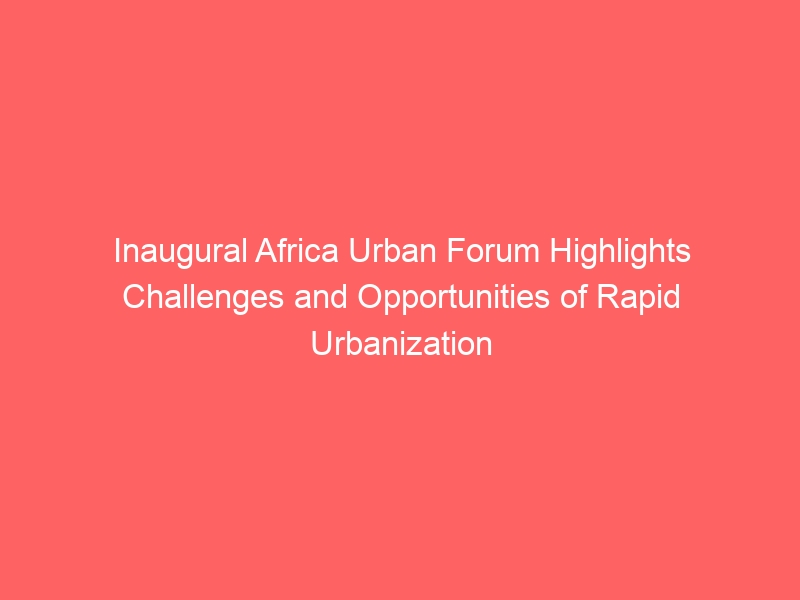By Baboloki Semele
Addis Ababa, Ethiopia, 4 September 2024 – African cities, which contribute over 50% of the continent’s GDP, are at the heart of its economic and social development. However, the fast pace of urbanization is presenting significant challenges, including underdeveloped infrastructure, climate vulnerabilities, and socio-economic inequalities. These concerns were highlighted at the opening of the inaugural Africa Urban Forum, which is taking place in Addis Ababa from September 4-6, 2024.
The forum, themed “Sustainable Urbanization for Africa’s Transformation – Agenda 2063,” is a collaborative effort organized by the Government of Ethiopia and the African Union Commission, in partnership with UN-Habitat and the Economic Commission for Africa (ECA). As experts predict that 60% of Africans will live in cities by 2050, the need for sustainable urban solutions has become increasingly urgent.
Stephen Karingi, Director of the Regional Integration and Trade Division at ECA, emphasized the critical importance of addressing these urban challenges. Speaking on behalf of ECA Executive Secretary Claver Gatete, Karingi said,
“We need to ensure that African cities are not only engines of growth but also exemplars of sustainable and inclusive development. The time for action is now, and with collective effort, we can pave the way for a brighter, more sustainable future for all urban dwellers in Africa.”
The Africa Urban Forum is focusing on financing options, partnerships, and solutions to advance sustainable urbanization. The goal is to develop actionable strategies that can transform urban landscapes across the continent. Karingi stressed the need for sound macroeconomic policies and development financing to create stable and robust economic environments. He also highlighted the importance of regional integration, economic diversification, and industrialization in enhancing the competitiveness of Africa’s economies and strengthening their resilience.
“Infrastructure, technology connectivity, and energy must be prioritized to build the backbone of modern, efficient cities that can support sustainable development,” Karingi added. He also pointed out that addressing climate change and food security is essential to ensure that urban development is resilient to environmental changes.
To tackle these challenges, the ECA is working with member states to foster growth and enhance development financing for urban infrastructure and services. According to Karingi, the ECA is collaborating with development banks and private sector stakeholders to develop innovative financing mechanisms tailored to the unique needs of African cities. These partnerships aim to provide the necessary capital for sustainable infrastructure, affordable housing, and essential services.
Efforts are also underway to strengthen the competitiveness of African economies and bolster resilience across the continent. These include providing technical support for implementing the African Continental Free Trade Area (AfCFTA), developing frameworks for climate-smart infrastructure projects, and promoting sustainable urbanization through national policies.
The ECA is leveraging technology and innovation in urban management, producing analytical reports, and creating the Africa Urban Portal. These resources offer valuable insights into urban development trends, guiding policymakers in making informed decisions about sustainable urban growth.
Karingi also emphasized the importance of expanding the municipal fiscal space in African cities, a key initiative led by the ECA in partnership with UN-Habitat and the United Nations Capital Development Fund (UNCDF). This effort aims to empower local governments to generate and manage financial resources effectively, enabling them to invest in critical infrastructure and services.
These efforts align with key African Union strategies, particularly Agenda 2063, which envisions cities that are livable, equitable, and resilient. The Africa Urban Forum serves as a crucial platform for advancing these goals and ensuring that Africa’s urban future is both sustainable and inclusive.
